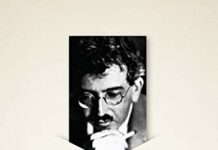
Ebook Info
- Published: 2006
- Number of pages: 320 pages
- Format: PDF
- File Size: 6.19 MB
- Authors: Walter Benjamin
Description
Walter Benjamin’s essays on the great French lyric poet Charles Baudelaire revolutionized not just the way we think about Baudelaire, but our understanding of modernity and modernism as well. In these essays, Benjamin challenges the image of Baudelaire as late-Romantic dreamer, and evokes instead the modern poet caught in a life-or-death struggle with the forces of the urban commodity capitalism that had emerged in Paris around 1850. The Baudelaire who steps forth from these pages is the flâneur who affixes images as he strolls through mercantile Paris, the ragpicker who collects urban detritus only to turn it into poetry, the modern hero willing to be marked by modern life in its contradictions and paradoxes. He is in every instance the modern artist forced to commodify his literary production: “Baudelaire knew how it stood with the poet: as a flâneur he went to the market; to look it over, as he thought, but in reality to find a buyer.” Benjamin reveals Baudelaire as a social poet of the very first rank.The introduction to this volume presents each of Benjamin’s essays on Baudelaire in chronological order. The introduction, intended for an undergraduate audience, aims to articulate and analyze the major motifs and problems in these essays, and to reveal the relationship between the essays and Benjamin’s other central statements on literature, its criticism, and its relation to the society that produces it.
User’s Reviews
Editorial Reviews: Review “In these essays, written in the 1930s, German critic Benjamin masterfully succeeds in changing our perception of French poet Charles Baudelaire as a late Romantic dreamer. Instead, he shows Baudelaire to be a thoroughly modern writer involved in a life-and-death struggle with that urban commodity, capitalism, which had begun to emerge in Paris in the 1850s. Benjamin portrays Baudelaire as a flaneur–a stroller who roamed the lonely Paris streets lost in the faceless crowd–as well as a lone modern hero searching for a means of selling his poetry. In the urban crowds, all traces of individuality are erased, and Baudelaire’s famed “spleen” is actually disgust at that defining aspect of the modern condition. Indeed, in “The Painter of Modern Life,” an essay Baudelaire wrote in 1863, he makes several acute observations about his sense of alienation that definitely establish him as a modern writer. Stimulating reading.”―Bob T. Ivey, Library Journal“Brilliant essays.”―Richard Wolin, The Nation“It’s depressing to be a critic within a hundred years of Benjamin: he got there first on so many things. The poet Charles Baudelaire died twenty-five years before Benjamin was born, in 1892, but Benjamin writes about him as if they were there together in nineteen-twenties Berlin, making a ruckus. For Benjamin, Baudelaire represented ‘the modern.’ That doesn’t mean that he claims Baudelaire wrote ‘about’ modernity but that his poetry embodies it. For example, Benjamin notes the influence on Baudelaire of new technologies such as photography, and writes that ‘Baudelaire was his own impresario,’ an artist who knew that his poems were commodities even before they were done.”―Sasha Frere-Jones, New Yorker“Now comes The Writer of Modern Life: Essays on Charles Baudelaire, edited by Princeton University professor Michael Jennings, and based on the writings of Walter Benjamin, a long dead German genius. Benjamin dissects the author of Les Fleurs du Mal (The Flowers of Evil) with a Marxist scalpel, among other unusual literary procedures. Why is all this happening? Maybe because in a unique way we fearful and confused souls recognize that Baudelaire’s mordant and yet often exquisitely beautiful poetry and screwed-up life are a kind of mirror noir of our own teetering times. The same violent deaths, political treacheries, religious confrontations–and yet brief Roman candle bursts of loveliness are there.”―Leslie H. Whitten Jr., Washington Times“This is an excellent collection of essays by one of the greatest critics of the first half of the 20th century about one of the greatest poets of the 19th century. In presenting Baudelaire in these landmark studies, Benjamin situates the first truly modern poet against the backdrop of the first truly modern city. From wide brushstrokes about the figure of the flaneur to close readings of specific poems, Benjamin’s acumen makes clear that he was that rare breed of critic who could deftly weave the macro and the micro in seamless discussions.”―S. Whidden, Choice“This is an excellent collection of essays by one of the greatest critics of the first half of the 20th century about one of the greatest poets of the 19th century. In presenting Baudelaire in these landmark studies, Benjamin situates the first truly modern poet against the backdrop of the first truly modern city. From wide brushstrokes about the figure of the flaneur to close readings of specific poems, Benjamin’s acumen makes clear that he was that rare breed of critic who could deftly weave the macro and the micro in seamless discussions…Jennings’ supporting critical apparatus, complete with useful notes at every turn, frames these important texts in a way that reveals not only Benjamin and Baudelaire but also the intersections of modernity, poetry, history, urbanism, and many other fields.”―S. Whidden, Choice“Benjamin planned to write a book on Baudelaire, but it never materialized. With the exception of ‘On Some Motifs in Baudelaire,’ which appeared in a journal edited by Max Horkheimer and Adorno in 1939, his Baudelaire essays were published posthumously. In the past thirty years, some of them have surfaced in English translations, but all of them have now been retranslated and brought together in a single volume entitled The Writer of Modern Life: Essays on Charles Baudelaire, complete with a valuable introduction and notes by Michael W. Jennings.”―Eric Bulson, Times Literary Supplement“Benjamin’s work continues to fascinate and delight because it has something for everyone: the literary critic, art historian, philosopher, urban theorist and architect. Whether he is talking about children’s toys, Mickey Mouse, Surrealism, photography, or Kafka, Benjamin has a knack for figuring out what they can tell us about the wider world that produced them.”―Eric Bulson, Times Literary Supplement About the Author Walter Benjamin (1892–1940) was the author of many works of literary and cultural analysis.Michael W. Jennings is Class of 1900 Professor of Modern Languages at Princeton University.Howard Eiland is an editor and translator of Benjamin’s writings.Rodney Livingstone is Professor Emeritus in German Studies at the University of Southampton. He is well known as a translator of books by Walter Benjamin, Theodor W. Adorno, and Max Weber, among others.
Reviews from Amazon users which were colected at the time this book was published on the website:
⭐It took a very long time to read but that is because it was a pleasure to read and who rushes through pleasure. (Perhaps too many of us.)I found the discussion of Baudelaire useful, difficult and often even lovely. As Walter Benjamin looks back nearly a century to understand his own time, so I find much in his thoughts helpful not only to better understand and so read, Baudelaire, but also Benjamin. Benjamin, along the way, offers some insights into our own confused/comic/tragic times.I find Benjamin persuasive: Baudelaire is not simply the poet of Modern Life, but the poet of the psyche of Modern Life–the last lyric poet before lyric poetry was silenced by incessant noise. ( A condition that defines both Hell and life as we know it.)By Benjamin’s time, the notion of modernity lost whatever positive strains it once possessed as it passed from a grim industrial, into the global. Benjamin’s radical conception was that it was possible to find in the life of a man and his work, who lived a century earlier, a guide to understand his own time. In the same way, we would profit, by reading Benjamin, dead now for 70 years, to understand something of our urban, if not urbane existence. The shock has not gone away in spite of the cushion of personal digital technology.Niccolo Machiavelli, in another City, in the early 16th Century, wrote: ” If the present be compared with the remote past, it is easily seen that in all cities and in all peoples, there are always the same desires and the same passions as there always were.” Here, as elsewhere, Machiavelli is prophetic.We may transition, but we don’t change. Benjamin sought to understand the impact of industrial life on the experience of the urban dweller, we might find him useful in understanding the effects of the digital revolution on our consciousness. Who, I wonder, will be our poet, the one, who in the manner of Baudelaire, manages to see inside the “works,” from the privileged position of being on the outside?
⭐Benjamin, one of the most brilliant literary 2oth c critics writing with extraordinary insight of the great 19th c French poet Baudelaire and their shared deep ambivalence about modernity, as the transient, the contingent.
⭐A must for any student of modernity!
⭐good
⭐Brilliant….Walter Benjamin is a great writer of ideas and brings to life the flaneur of 19th Century Paris. Excellent.
Keywords
Free Download The Writer of Modern Life: Essays on Charles Baudelaire in PDF format
The Writer of Modern Life: Essays on Charles Baudelaire PDF Free Download
Download The Writer of Modern Life: Essays on Charles Baudelaire 2006 PDF Free
The Writer of Modern Life: Essays on Charles Baudelaire 2006 PDF Free Download
Download The Writer of Modern Life: Essays on Charles Baudelaire PDF
Free Download Ebook The Writer of Modern Life: Essays on Charles Baudelaire





